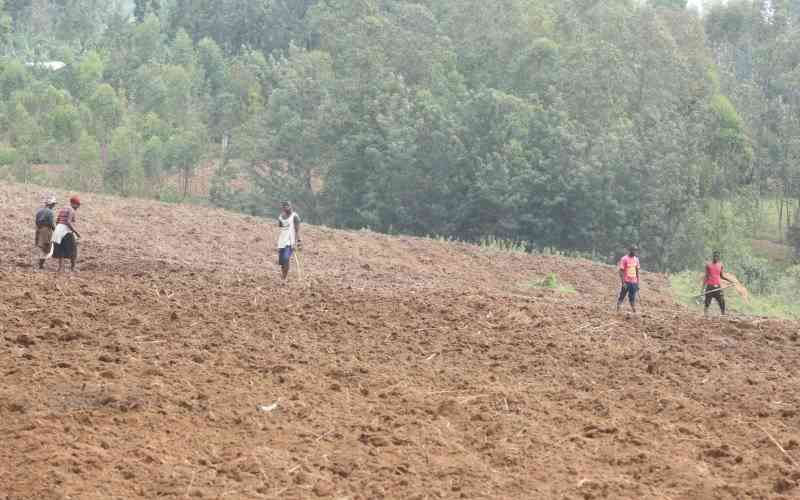×
The Standard e-Paper
Fearless, Trusted News

For months, farmers watched their farms turn into drylands and livestock drop dead due to the drought that had hit the country.
But in the last few days, clouds have been gathering, marking the return of the long-awaited rains. Farmers in most counties are returning to their farms before they miss out on the rains, which the weatherman says can only sustain crops that mature early.